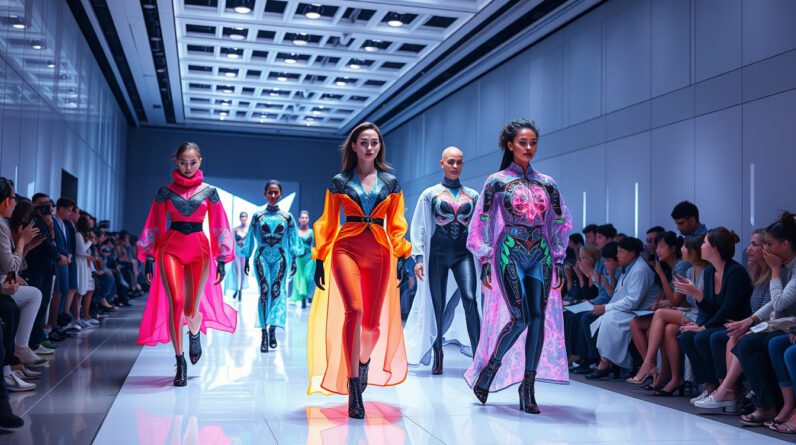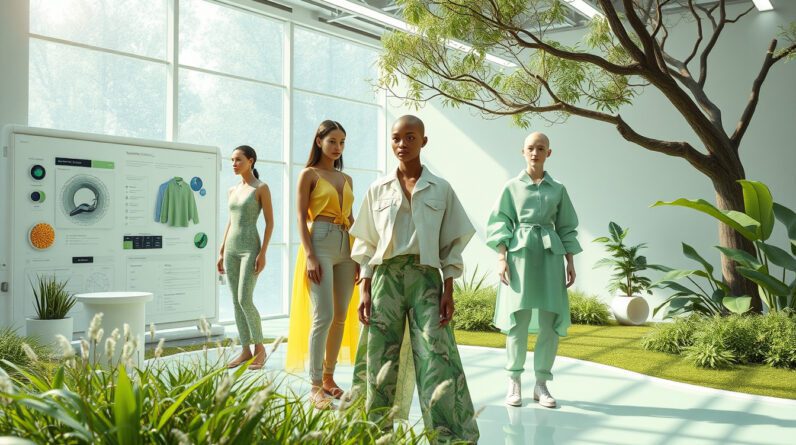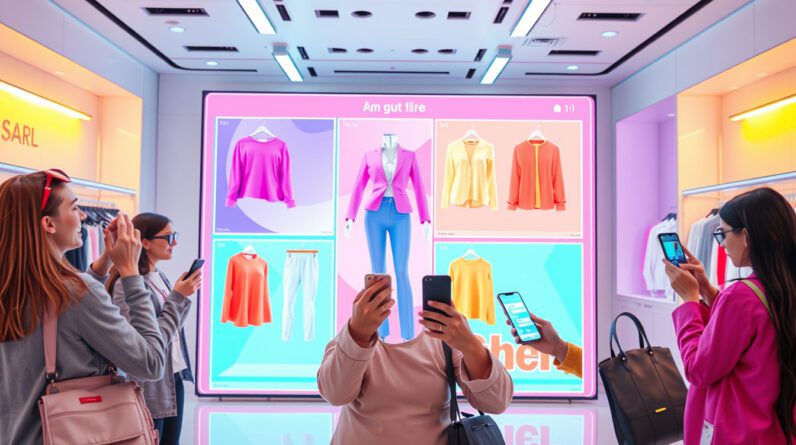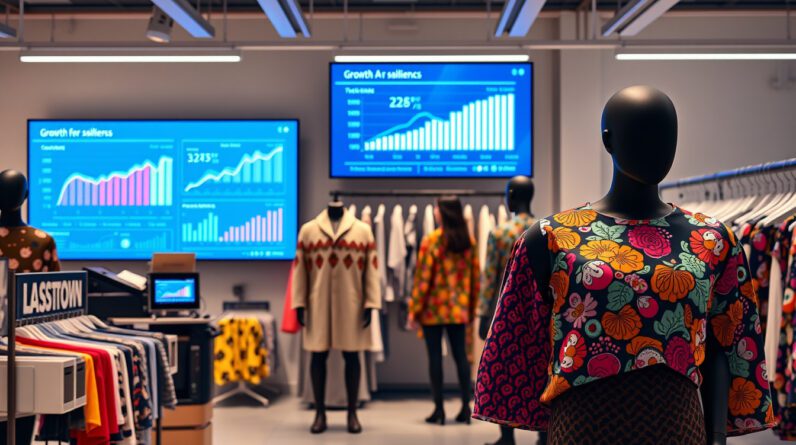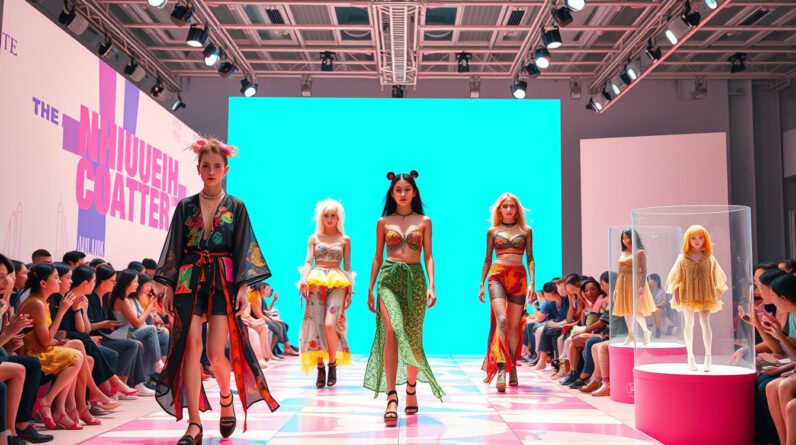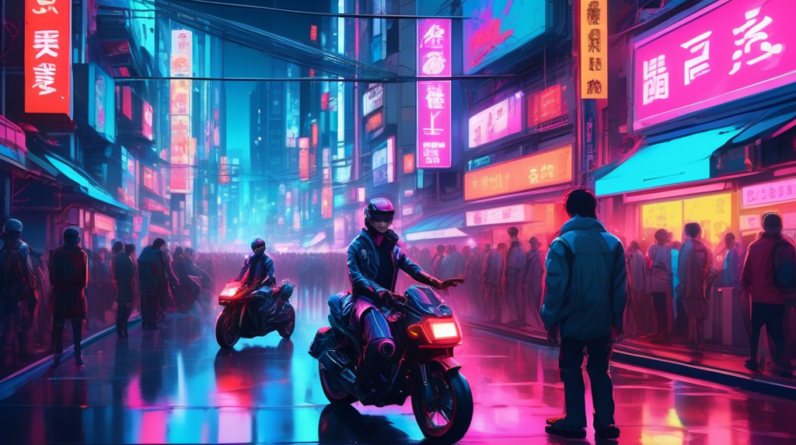
Akira’s Prophetic Vision
Released in 1988, Katsuhiro Otomo’s animated masterpiece, Akira, painted a vivid and, some might argue, prophetic picture of Neo-Tokyo in 2019. This cyberpunk landscape, teeming with biker gangs, psychic children, and government conspiracies, wasn’t just a backdrop; it was a character itself. And within this neon-drenched dystopia, Otomo sowed the seeds of fashion trends that would echo for decades to come.
Beyond the Capsule: The Enduring Influence of Akira Fashion
The film’s iconic red motorcycle jacket, emblazoned with the Kaneda capsule, became synonymous with rebellious cool, influencing fashion designers and street-style enthusiasts alike. But Akira‘s impact on fashion runs far deeper than a single garment. The film introduced a collision of styles – a fusion of traditional Japanese aesthetics with futuristic cyberpunk elements. Think oversized silhouettes, flowing fabrics, technical outerwear, and bold graphic designs. This unique blend resonated with audiences worldwide, cementing Akira as a cornerstone of cyberpunk fashion and a wellspring of inspiration for contemporary designers.
Tokyo Street Style: Where Tradition Meets Innovation
Tokyo has long been hailed as a global fashion capital, a city where tradition and innovation collide on the streets. From the elegant simplicity of minimalist fashion to the avant-garde extravagance of Harajuku style, Tokyo is a melting pot of self-expression through clothing. This fearless approach to fashion, where rules are meant to be broken and individuality is paramount, is a natural extension of Akira‘s rebellious spirit.
The AI Revolution: Reshaping the Fashion Landscape
Just as Akira imagined a technologically advanced future, we stand at the cusp of a new era shaped by artificial intelligence. AI is already transforming various industries, and the world of fashion is no exception. From AI-powered design tools to personalized shopping experiences, artificial intelligence is poised to revolutionize how we create, consume, and interact with fashion.
The Intersection: Where Akira, Tokyo Street Style, and AI Converge
Imagine a future where AI algorithms analyze street style trends in real-time, drawing inspiration from the fashion-forward streets of Tokyo. Picture AI-powered design assistants collaborating with human designers, creating unique garments that blur the lines between art and technology. Envision a world where personalized fashion experiences are curated by AI, offering customized style recommendations based on individual preferences and body types. This is the future where Akira‘s legacy, Tokyo street style’s innovative spirit, and the transformative power of AI converge.
AI as a Creative Partner: Amplifying Human Ingenuity
It’s important to note that AI isn’t here to replace human creativity; rather, it serves as a powerful tool to enhance and amplify it. By analyzing vast amounts of data, from historical fashion trends to contemporary street style images, AI can identify patterns and generate insights that would be impossible for humans to process alone. This data-driven approach provides designers with valuable inspiration, helps them understand emerging trends, and empowers them to push the boundaries of creativity even further.
Hyper-Personalization: Tailoring Fashion to the Individual
One of the most exciting aspects of AI in fashion is its potential for hyper-personalization. Imagine walking into a store (or browsing online) and being presented with clothing options tailored specifically to your body type, style preferences, and even your current mood! AI algorithms can analyze your past purchases, social media activity, and browsing history to create a uniquely tailored shopping experience, making fashion more personal and relevant than ever before.
Sustainable Solutions: Addressing the Fashion Industry’s Impact
Beyond aesthetics and personalization, AI has the potential to address some of the fashion industry’s most pressing challenges, particularly its environmental impact. By optimizing production processes, minimizing waste, and promoting circularity, AI can contribute to a more sustainable and responsible fashion ecosystem. For example, AI algorithms can analyze demand patterns to optimize inventory management, reducing the amount of unsold clothing that ends up in landfills. Furthermore, AI can be used to develop innovative materials and manufacturing techniques that are both stylish and environmentally friendly.
A Glimpse into the Future: What Awaits Us?
As AI continues to evolve, its influence on fashion will only become more profound. We can anticipate even more sophisticated design tools, hyper-realistic virtual try-on experiences, and perhaps even AI-powered garments that adapt to our surroundings or respond to our emotions. The line between the physical and digital realms will continue to blur, creating exciting new possibilities for self-expression through fashion.
Neo-Tokyo in Our Midst?
While we may not be zipping around on futuristic motorcycles (yet!), the world envisioned in Akira feels closer than ever. The fusion of technology and style, the relentless pace of innovation, and the blurring of lines between the real and the virtual are all hallmarks of our present day. And just like in Neo-Tokyo, the streets are our runway, a canvas for self-expression and a testament to the enduring power of fashion to reflect and shape our world.
As we venture further into this uncharted territory, one thing remains certain: the future of fashion is inextricably linked to the advancements in AI. And as we embrace the transformative power of this technology, we carry with us the rebellious spirit of Akira and the innovative energy of Tokyo street style, shaping a future where fashion is as limitless as our imaginations.

